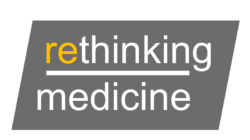I delivered a baby again this week
This week I returned to clinical work. Its been more than 100 days since I last saw a patient in real life. More than three months since I touched a patient, delivered their baby or looked to see if they had cancer.
A lot has happened in those 100 days. My son’s diagnosis with cancer for the second time in his short 10 year life is probably the biggest thing that’s happened. It would have happened whether Covid-19 existed or not.
There is also the fact that I haven’t delivered a baby, which I’ve been doing for the last 15 years. And that was part of the response to Covid-19 for extremely vulnerable families, for my family it was because our son is on chemotherapy. Since lockdown, I’ve been working at home, helping to steer my Trust’s response to Covid-19.
I’m glad I’ve had the opportunity to see the response through the eyes of being a patient (well, not quite a patient, but a patient’s dad).
Occasionally, we’ve been let out, mainly to go to the hospital where we’ve faced barrier after barrier. You can’t see us because of COVID, you can’t park here because of COVID, you can’t come to the ward because of COVID. All seemingly small precautions, but they add up to the clear message: “do what we tell you.”
The response to Covid-19 dulled patients’ voices, the focus moved to ‘helping the NHS’…. In doing that, we’ve asked people to stop talking to the NHS and instead, asked them only to listen
The messages around the NHS’s capacity have been heard clearly, with huge drops in attendances across the board. Capacity has been shifted and it has left some services and patients reeling. Even cancer services and services for really vulnerable people have been cut. We were worried enough to ask whether the chemotherapy protocol my son was on was chosen because it could be given at home – it wasn’t – but is that a question we should have needed to ask?
The NHS celebrated its 72nd birthday on Saturday. Over the last seven decades patients’ voices have become louder and louder. We try and design services around patients and their needs, rather than for the institutions that deliver care. Hearing and acting on patients’ demands is one of the reasons I enjoy working with Kaleidoscope. To be fair, delivering babies keeps things pretty real too.
We will debate the UK’s response to Covid-19 for many years, but now, the rebuild phase, we need to ensure we start listening to patients again.
The response to Covid-19 dulled patients’ voices, the focus moved to “helping the NHS.” Patients have been encouraged to stay away from healthcare services unless they are “really ill” or ill enough to risk catching Covid-19. In doing that, we’ve asked people to stop talking to the NHS and instead, asked them only to listen.
We will debate the UK’s response to Covid-19 for many years, but now, the rebuild phase, we need to ensure we start listening to patients again. It won’t be enough though just to say we’re listening, we’ll need to do more than that, we’ll need to go searching. We need to bring people in and make them part of those decisions so that services are rebuilt around what patients want and need.



Comments
The responsible patient has had to stop and think about their own wellbeing, identifying different ways of managing their health needs. This is a fine tightrope and a frightening walk in a family that has to manage any life-threatening condition in one or more members. It can be difficult to convey information over the telephone when talking with your GP or consultant and to ensure that your concerns are heard and understood. urgent appointments are taking longer to come through and by definition this in itself raises concerns. Yet most patients have been extraordinarily patient.
After Covid=19 we will find that patients think differently, they have had to care for themselves in a way that has not done for decades. They will think differently and ask tougher questions. At a time when the patient voice is becoming louder, this could be the catalyst that causes a change in how patients and doctors work together.
I am concerned, as this change demonstrates itself in extremes, within the GP practice I attend, I have one doctor that turns her back to me when I ask a deeper question, and to the other extreme I have a doctor who explains things quickly and clearly. There is a need for medical professionals to review their approach to their patients on a fundamental basis.
The future is now; how the patient and medical professional work together on a new footing. This requires more training on both sides.